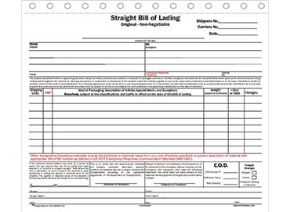
The Grocery Bill Crisis: Who’s Really to Blame?
Former President Donald Trump recently made headlines in his interview with Time magazine, stating, "It's hard to bring things down once they're up. You know, it's very hard," referring to the cost of groceries. While his comment is accurate on the surface, it barely scratches the surface of a far deeper issue: the role of the global elite in controlling prices across various industries.
To understand the gravity of the situation, one must look at the consolidation of power among a handful of corporations and financial institutions. The top 10 corporations in many industries—from agriculture and manufacturing to technology and pharmaceuticals—are owned or heavily influenced by a small group of investment giants, including BlackRock, Vanguard, and State Street. These firms collectively manage trillions of dollars and hold significant shares in almost every major publicly traded company.
The Hidden Monopoly
While many believe that competition drives prices, the reality is far more complex. These elite entities essentially own the competition. For instance, BlackRock and Vanguard are major shareholders in companies like PepsiCo and Coca-Cola, two so-called rivals in the beverage industry. Similarly, they hold significant stakes in both Tyson Foods and Cargill, two giants in meat production. This level of ownership creates a closed-loop system where these firms profit regardless of which "competitor" succeeds.
This concentration of ownership enables the elite to set prices with little regard for market forces. When costs rise, whether due to supply chain disruptions, geopolitical events, or inflation, these firms can pass those costs onto consumers with minimal pushback. And once prices are raised, they rarely return to their original levels—a phenomenon economists refer to as "price stickiness."
The Role of Inflation
Inflation often serves as a convenient scapegoat for rising prices. While it’s true that inflation erodes the purchasing power of money, the actual rate of inflation is often manipulated. Central banks, like the Federal Reserve, have immense power to influence inflation rates through monetary policy. However, the central banks themselves are not immune to the influence of the global elite, as these entities often have direct or indirect ties to decision-makers.
For example, quantitative easing—a policy used to inject money into the economy—often results in increased asset prices, benefiting those who own the majority of assets: the wealthy elite. Meanwhile, the average consumer faces higher prices for basic necessities like food, fuel, and housing.
The Psychological Game
Another factor in price control is consumer psychology. People are often willing to pay higher prices if they believe there is no alternative. The global elite understand this and use it to their advantage. By controlling both the supply chain and the narrative, they can justify price hikes while minimizing public outcry. Media outlets, often owned or influenced by the same conglomerates, play a crucial role in shaping public perception, ensuring that the blame for high prices is shifted elsewhere—to labor costs, environmental regulations, or foreign adversaries.
Breaking the Cycle
So, what can be done to break this cycle? Awareness is the first step. Consumers need to understand that the market is not as free as it appears. Policies that promote genuine competition and transparency are essential, as are measures to break up monopolistic entities.
Grassroots movements also have a role to play. Supporting local businesses and cooperatives can reduce reliance on the corporate giants that dominate the market. Additionally, pressuring policymakers to address the undue influence of the global elite on government and economic systems is crucial.
Conclusion
Trump’s statement about the difficulty of reducing prices once they rise highlights a symptom of a much larger problem. The global elite—through their control of major corporations, financial institutions, and even governments—hold immense power over the cost of living. Until this concentration of power is addressed, consumers will continue to bear the burden of ever-rising prices, while the elite reap the rewards. The path forward requires not only awareness but also collective action to challenge the systems that allow such disparities to persist.
































